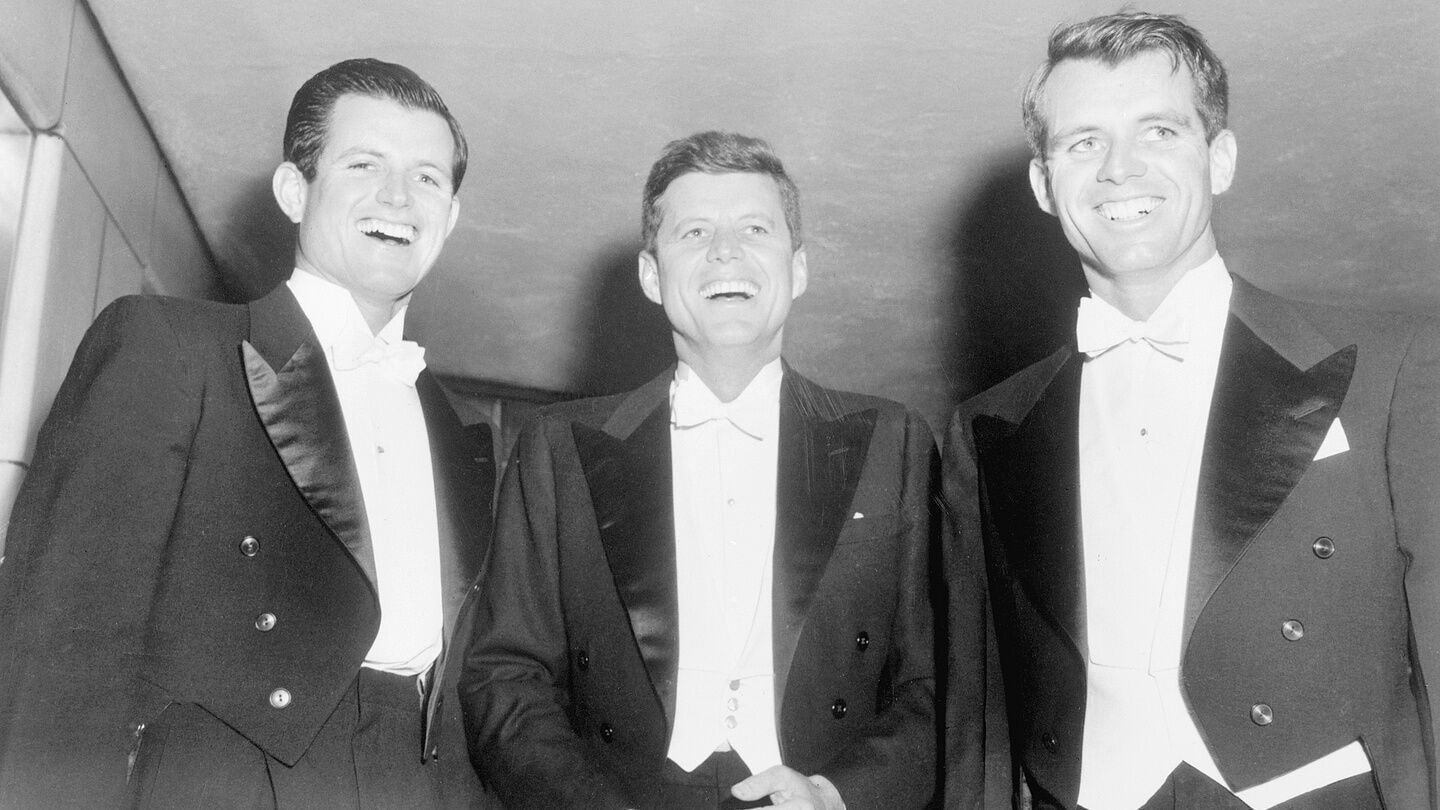Queen Elizabeth and Prince Phillip with President Kennedy and First Lady Jacqueline Kennedy at Buckingham Palace in June of 1961.
From Photoquest/Getty Images
Ivy League Education: Grooming the Future Rulers
The Kennedy brothers were carefully groomed for leadership from a young age, with their father ensuring they received the best education possible. Both JFK and RFK attended Ivy League institutions—JFK at Harvard and RFK at Harvard and the University of Virginia School of Law. These institutions, with their traditions of elite education and connections to America’s most powerful families, served as breeding grounds for the nation’s future leaders.
Ivy League schools have long been associated with the cultivation of an American aristocracy, producing graduates who go on to hold significant positions of power in government, finance, and academia. For the Kennedys, their education was not just about acquiring knowledge but also about building the networks and social capital necessary to sustain a political dynasty. This education, combined with their father’s vision, positioned the Kennedy brothers to assume roles that went beyond mere public service—they were being groomed to rule.
The Camelot Reign: Creating a Modern Monarchy
JFK’s presidency is often referred to as “Camelot,” a term that evokes the legendary court of King Arthur. This romanticized image of the Kennedy White House was not an accident—it was a carefully crafted narrative that sought to present the Kennedy family as a kind of American royalty. The term “Camelot” was popularized after JFK’s assassination, but the seeds of this idea were sown during his time in office.
The Kennedy administration was characterized by its focus on style, elegance, and cultural refinement. State dinners, the arts, and high society events were all part of the administration’s public image, reinforcing the idea of the Kennedys as a noble family leading the nation. This image was further bolstered by the media, which played a significant role in shaping public perception of the Kennedys as a modern-day royal family.
The Camelot narrative served to elevate the Kennedys above the fray of ordinary politics, positioning them as figures of almost mythical status. In doing so, it laid the groundwork for a subtle shift in the American political system—one that moved toward a more centralized and aristocratic form of governance, with the Kennedy family at its core.
The New Frontier: Expanding the Realm
JFK’s domestic and foreign policy agenda, known as the New Frontier, further reinforced the Kennedys’ vision of leadership that transcended traditional democratic norms. The New Frontier called for a renewal of American innovation, social progress, and global leadership. It was a bold vision that required strong, decisive leadership—qualities that the Kennedys embodied.
The New Frontier was more than just a political platform; it was a call to action that resonated with the American people. It suggested that the United States needed a leader who could guide the nation through the challenges of the Cold War, civil rights, and economic inequality. In this context, JFK and RFK presented themselves not just as politicians but as leaders who were uniquely qualified to shape the future of the nation, much like Julius Caesar positioned himself as the only leader capable of saving Rome from chaos.
The Kennedy Unfinished Legacy: A New American Monarchy?
The Kennedy brothers’ actions and public personas suggest a deliberate attempt to transform the American Republic into something more akin to a dynastic continuity or monarchy. Through their father’s wealth & influence, their elite education, the carefully crafted Camelot image, and the ambitious New Frontier agenda, the Kennedys sought to establish a lasting dynasty that would dominate American politics for generations.
Having said that, the Kennedys’ ambitions were cut short by tragedy. JFK’s assassination in 1963, followed by RFK’s in 1968, brought an abrupt end to the dream of a Kennedy dynasty. The promise of a new American aristocracy, with the Kennedys at its helm, remained unfulfilled.
However, the legacy of the Kennedy brothers continues to influence American politics and culture. Their vision of a powerful, noble family ruling the nation, while never fully realized, has left an indelible mark on the American psyche. The Kennedy family remains a symbol of both the heights of American political ambition and the potential dangers of concentrating power within a single lineage.
Conclusion: The Thin Line Between Republic and Monarchy
The story of the Kennedy brothers serves as a reminder of the fragile nature of republican governance. While the United States was founded on principles of democracy and equality, the allure of aristocracy and dynastic continuity remains ever-present. The Kennedys, influenced by their father’s dreams of elite status and their own experiences in the Ivy League and the corridors of power, came closer than any other American family to transforming the republic into a dynasty.
In the end, the assassination of JFK and RFK thwarted the hypothetical scenario, but the questions raised by their rise to power continue to resonate. How close did the United States come to embracing a new form of governance, one led by a single family as a multi-generational institution? And how might the legacy of the Kennedys influence future generations of leaders who seek to walk the fine line between democracy and dynastic continuity? These questions remain as relevant today as they were during the height of the Kennedy brothers’ influence.


